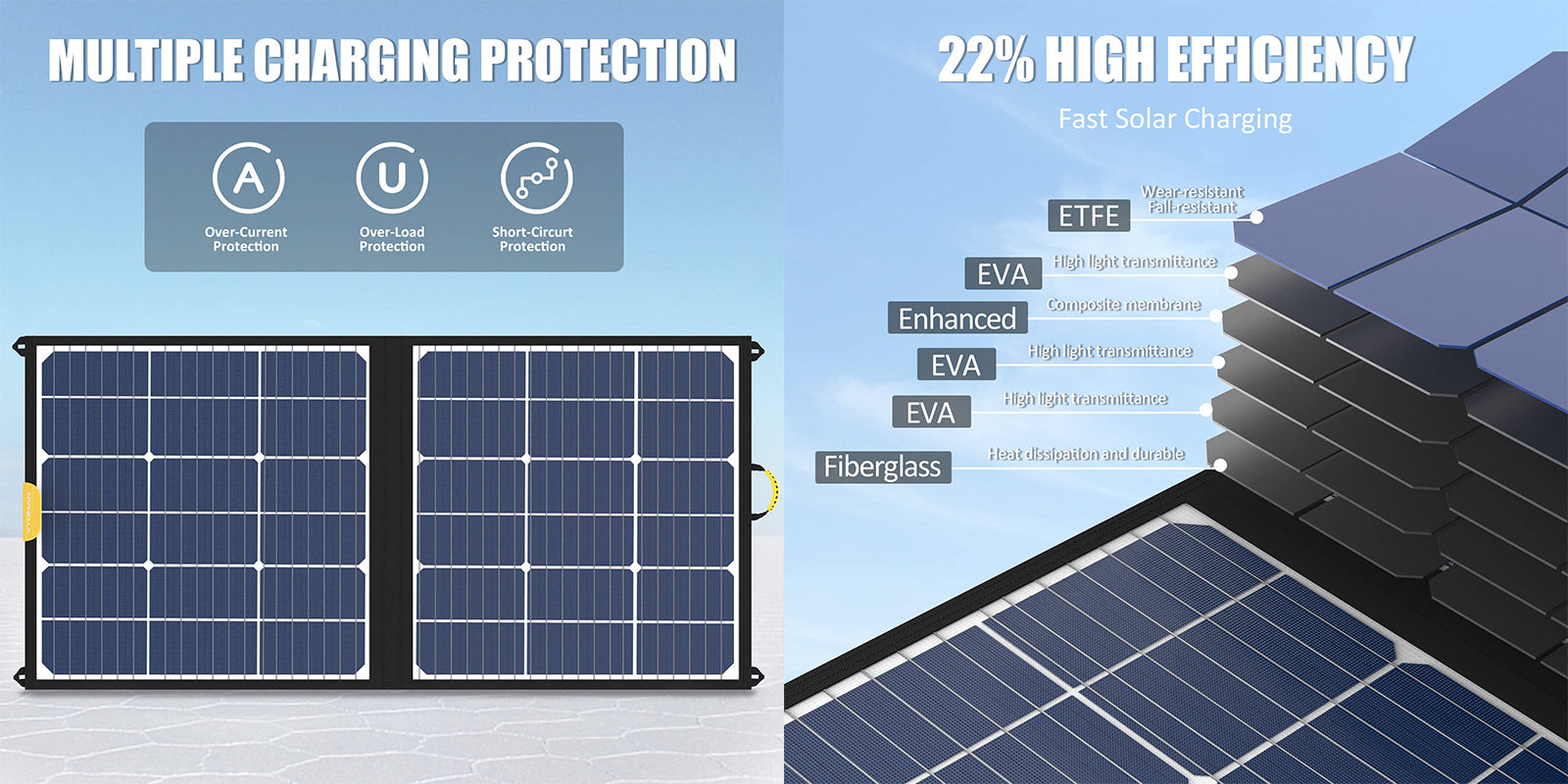RV solar panels have become increasingly popular among outdoor enthusiasts who want to harness the power of the sun to power their adventures. However, there are several common myths surrounding RV solar panels that need to be debunked. In this article, we will explore and dispel these myths to provide you with a comprehensive understanding of RV solar panels.
Myth 1: RV Solar Panels are Inefficient
One of the most prevalent myths about RV solar panels is that they are inefficient and cannot generate enough power to meet the energy needs of an RV. This misconception stems from outdated information and a lack of understanding about the advancements in solar technology.
In reality, modern RV solar panels are highly efficient and can generate a significant amount of power. With advancements in solar cell technology, RV solar panels can now convert a higher percentage of sunlight into usable electricity. Additionally, the use of MPPT (Maximum Power Point Tracking) charge controllers allows for optimal power conversion, maximizing the efficiency of the solar panels.
Furthermore, the efficiency of RV solar panels is also influenced by factors such as the angle and orientation of the panels, as well as the amount of sunlight available. By properly positioning and maintaining the panels, RV owners can ensure they are getting the most out of their solar system.
Myth 2: RV Solar Panels are Expensive
Another common myth surrounding RV solar panels is that they are prohibitively expensive. While it is true that the initial investment in a solar system can be significant, it is important to consider the long-term benefits and cost savings.
RV solar panels can significantly reduce or even eliminate the need for traditional power sources, such as generators or shore power. This means RV owners can save money on fuel costs and campground fees, while also reducing their carbon footprint. Over time, the cost savings from using solar power can offset the initial investment, making RV solar panels a cost-effective choice.
Myth 3: RV Solar Panels are High Maintenance
Some people believe that RV solar panels require constant maintenance and are difficult to upkeep. However, this is not the case. RV solar panels are designed to be durable and withstand the rigors of outdoor travel.
While it is true that regular maintenance is necessary to ensure optimal performance, it is relatively simple and straightforward. Basic maintenance tasks include cleaning the panels to remove dirt and debris, checking the connections for any loose wires, and inspecting the panels for any signs of damage. By following these simple maintenance practices, RV owners can keep their solar panels in excellent condition and extend their lifespan.
Myth 4: RV Solar Panels are Only Suitable for Sunny Climates
Many people believe that RV solar panels are only effective in sunny climates and are not suitable for use in areas with less sunlight. While it is true that solar panels perform best in direct sunlight, they can still generate power even on cloudy or overcast days.
Solar panels are designed to capture both direct and indirect sunlight, meaning they can still produce electricity even when the sun is not shining brightly. Additionally, advancements in solar technology have made panels more efficient at converting sunlight into electricity, allowing them to generate power even in less-than-ideal conditions.
It is also worth noting that RV solar panels can be used in conjunction with other power sources, such as generators or shore power, to ensure a constant supply of electricity, regardless of the weather conditions.
In conclusion, rv solar panels are a reliable and efficient source of power for RV owners. By debunking these common myths, we hope to provide you with a better understanding of the capabilities and benefits of RV solar panels. Whether you are a full-time RVer or an occasional adventurer, harnessing the power of the sun can enhance your RV experience and provide you with a sustainable and cost-effective energy solution.
